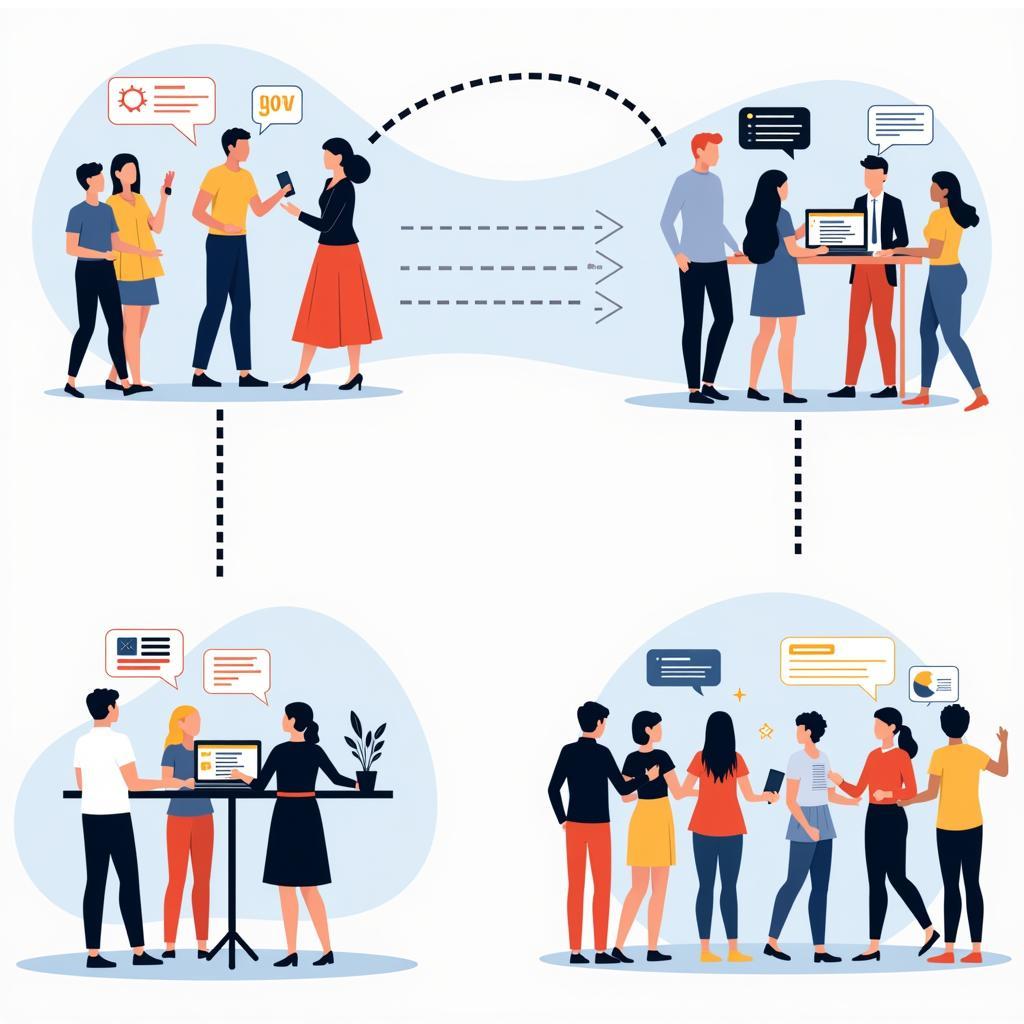The Solitaire Society. It’s a term that reflects the increasing sense of isolation many feel in our hyper-connected world. Ironically, surrounded by digital devices and social media platforms, we can find ourselves more alone than ever. This article explores the complexities of the solitaire society, its impact on our well-being, and how we can foster genuine connection in a world that often feels fragmented.
Understanding the Solitaire Society: A Paradox of Connection
The rise of the solitaire society is a complex phenomenon. While technology promises connection, it can also create barriers. Social media, for example, can lead to superficial interactions and a sense of inadequacy, fueled by carefully curated online personas. The constant barrage of information can also be overwhelming, leading to withdrawal and a preference for solitary activities. But is this truly solitude, or is it a form of enforced isolation?
The Impact of Technology on Human Connection
Technology has undoubtedly revolutionized how we communicate. We can connect with people across the globe instantaneously. Yet, this ease of communication can come at a cost. Face-to-face interactions are being replaced by digital exchanges, leading to a decline in empathy and genuine understanding. The anonymity of the internet can also embolden negative behaviors, contributing to cyberbullying and online harassment, further pushing individuals into the perceived safety of the solitaire society.
Breaking Free from the Solitaire Society: Cultivating Meaningful Connections
Despite the challenges, there are ways to break free from the confines of the solitaire society and cultivate meaningful connections. It requires a conscious effort to prioritize genuine interaction and build strong relationships. Here are some strategies:
-
Embrace face-to-face interactions: Prioritize spending quality time with loved ones without the distractions of technology. Engage in shared activities and meaningful conversations.
-
Cultivate active listening skills: Focus on truly hearing and understanding others’ perspectives. Empathy and active listening are essential for building strong connections.
-
Seek out shared interests: Join clubs, groups, or organizations that align with your passions. This provides opportunities to connect with like-minded individuals and build a sense of community.
-
Limit social media consumption: Be mindful of how much time you spend on social media and its impact on your well-being. Consider taking breaks or setting limits on usage.
Building Community in a Digital Age
Building community in a digital age requires creativity and intention. Online platforms can be used to facilitate connection, but they should not replace real-world interactions. Consider joining online communities that foster positive engagement and shared interests. Use technology to enhance existing relationships rather than as a substitute for them.
 Building Community in the Digital Age
Building Community in the Digital Age
The Solitaire Society and Mental Wellbeing
The isolation associated with the solitaire society can have a significant impact on mental wellbeing. Loneliness and social isolation are linked to increased rates of depression, anxiety, and other mental health challenges. It’s crucial to recognize the signs of isolation and seek support when needed.
Dr. Sarah Johnson, a leading psychologist specializing in social isolation, notes, “The feeling of being disconnected can be deeply damaging to our mental health. It’s essential to prioritize building strong social connections and seeking professional help when needed.”
Finding Solace and Support
If you’re struggling with feelings of isolation, there are resources available to help. Mental health professionals can provide support and guidance in navigating the challenges of the solitaire society. Support groups and community organizations can also offer a sense of belonging and connection.
Professor David Lee, a sociologist specializing in community building, adds, “Finding your tribe, whether online or offline, is crucial for combating the negative effects of social isolation. Shared experiences and mutual support can be incredibly powerful.”
Conclusion: Reclaiming Connection in the Solitaire Society
The solitaire society presents a unique challenge in our modern world. While technology has connected us in unprecedented ways, it has also created a paradox of isolation. By prioritizing genuine interaction, cultivating empathy, and building strong communities, we can reclaim connection and combat the negative effects of the solitaire society. Remember, human connection is a fundamental need, and it’s within our power to foster it, both online and offline.
FAQ
- What is the solitaire society?
- How does technology contribute to social isolation?
- What are the negative impacts of loneliness?
- How can I build stronger connections with others?
- Where can I find support for social isolation?
- What are some examples of online communities that foster positive engagement?
- How can I balance online and offline interactions for a healthier social life?
Common Situations and Questions
- I feel lonely even though I’m constantly connected online. What can I do?
- I struggle to make new friends in person. How can I overcome my shyness?
- I spend too much time on social media and it’s making me feel worse. How can I cut back?
Further Reading and Resources
Explore other articles on our website related to building community, fostering connection, and mental wellbeing.
Call to Action
For support and assistance, please contact us: Phone: 02043854663, Email: [email protected] Or visit our address: Khu 34, Bac Giang, 260000, Vietnam. We have a 24/7 customer support team.